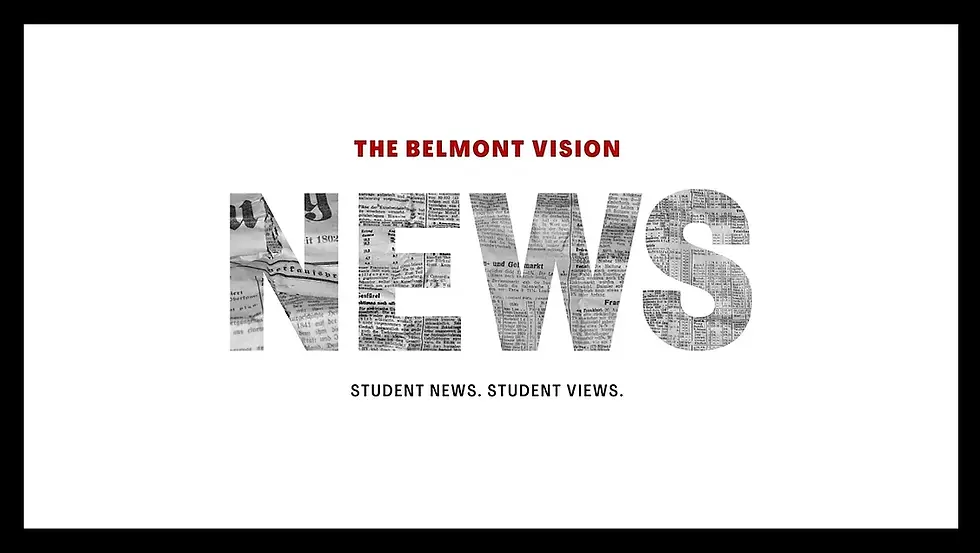The fight for Muslim inclusion at Belmont
- Isaac Wetzel
- Mar 3, 2023
- 2 min read

While Belmont University's Muslim Student Association was approved in November, creating an organization for Muslim students remains difficult.
Belmont revised its policy to hire Jewish faculty, yet this step towards inclusion means continued exclusion to those of other religious identities.
“Jews, Muslims and Christians are part of the Abrahamic branch. We are brothers in faith. It is not Christian, Muslim or Jewish to exclude one another. It’s not even a bias towards my religion, but a bias against humanity and equal rights,” said Muslim student Deya Rassul Kokoy.
Whether it’s through faculty representation or student organizations, the university’s policies have been slow to acknowledge or include its Muslim demographic.
Until recently, Belmont did not have a Muslim Student Association. Instead, the alternate secular organization South West Asian and Northern African Association were formed.
“I would go to a lot of SWANA events, but it still sucks when I didn’t have a safe space. We would go to Vanderbilt’s MSA events and they would have good food, great speakers and beautiful events. It’s almost unfair,” said Rassul Kokoy, the president of SWANA and the new MSA.
“It's frustrating. I remember the conversation with the student who wanted to start a Muslim student organization in 2011. She loved Belmont, but she said it broke her heart to be told that because it wasn't a Christian religious organization, it couldn't exist here,” said Belmont history professor Daniel Schafer.
In November 2022, Provost David Gregory sent an email to Belmont faculty and staff on the updated hiring practice to “support the hiring of faculty of Christian or Jewish faith who are committed to the University’s Christ-centered mission.”
The updated policy applied to the Colleges of Medicine, Law and Pharmacy. Gregory said the new hiring practice is expected to become campus-wide.
“This is an important step forward for Belmont as we solidify our identity as a hospitable, Christ-centered community,” said Gregory in the email.
Even with the development towards a more diverse faculty, Rassul Kokoy said Belmont still does not reflect the Nashville community.
But for a private institution that claims a religious identity, it can hire on the principle of religion.
“Even if many people would disagree and say a Christian university should be more open, Belmont has the right to hire whomever fits its values,” said Schafer.
Schafer hypothesized that if Belmont were open to the Jewish faith, a coherent and reasonable argument could be made for Muslims, Hindus and even Zoroastrians.
“If the decision is being made based on theological questions, I will say that religion can be very malleable, and people do sometimes design their religion to fit their circumstances,” said Schafer.
Regardless of religious rhetoric, Rassul Kokoy says she hopes to see continued growth and inclusion on campus.
“I'm all for Jewish faculty, but I'm also for Muslim faculty. I'm for Orthodox faculty, for Hindu faculty and for atheist faculty,” said Rassul Kokoy. “Everybody has the right to be educated and to educate. I don't think that should be limited, especially when it comes to something as personal as beliefs.”
—
This article was written by Isaac Wetzel






Comments